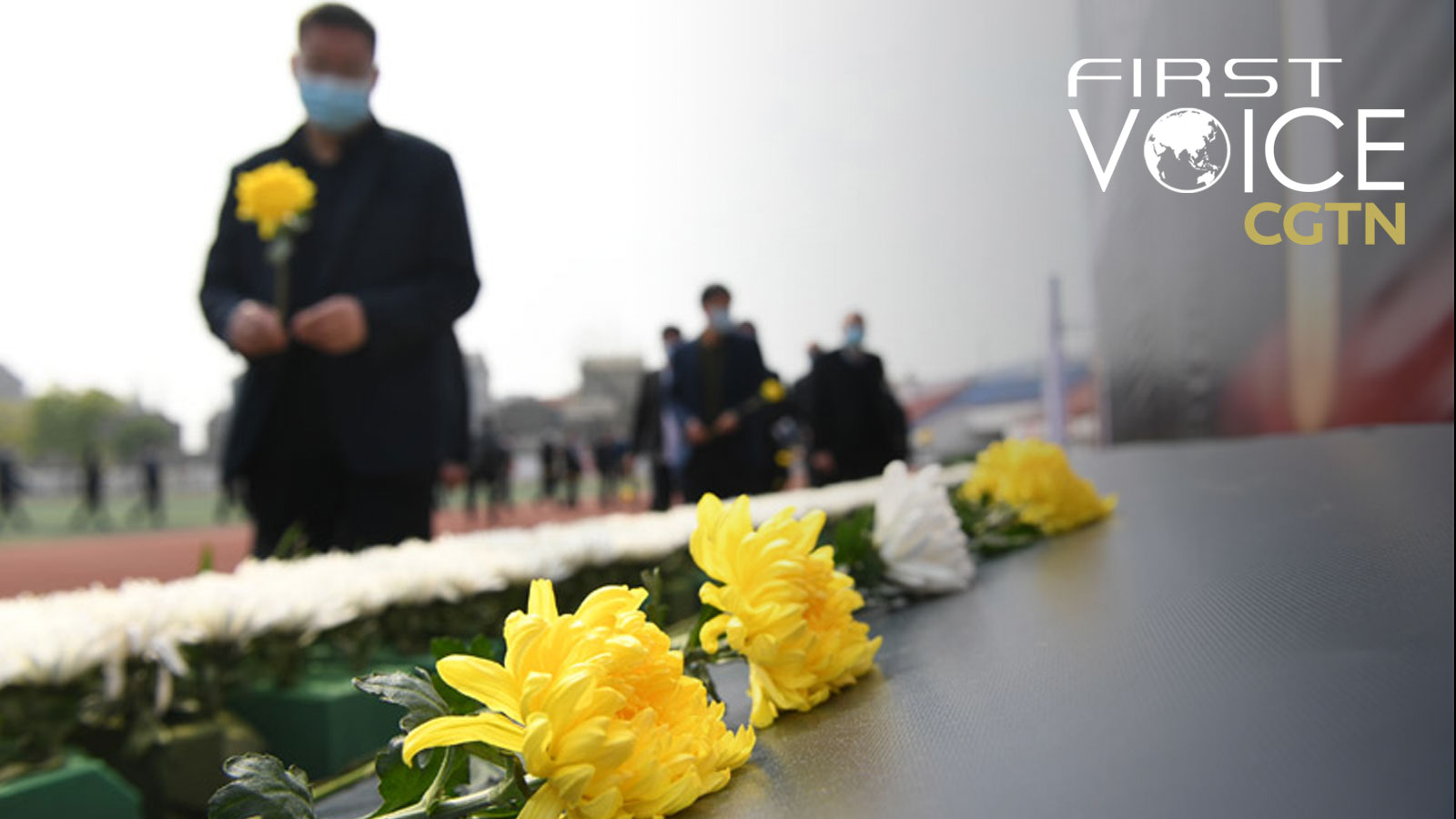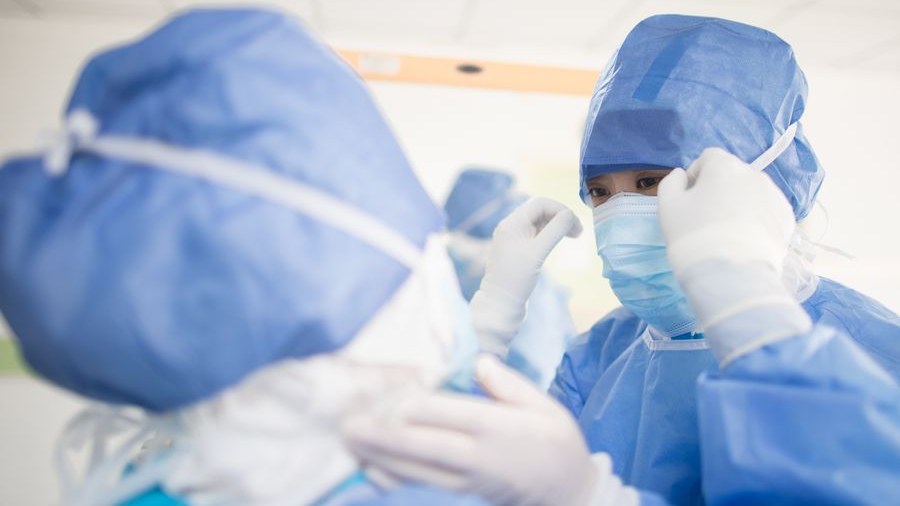
Editor's note: CGTN's First Voice provides instant commentary on breaking stories. The daily column clarifies emerging issues and better defines the news agenda, offering a Chinese perspective on the latest global events.
At 10 a.m., sirens sounded, colleagues rose from their seats, and the office came to a halt.
It's not every day one hears such sound throughout Beijing and the country, and much rarer when it happens on an important holiday like Qingming Festival. But then, it's not a usual Qingming Festival.
Saying this year is special is an understatement. Over the past months, Chinese people, along with the rest of the world, buried more of their loved ones than it should've been. COVID-19 has taken 55,000 lives, more than 3,000 of them are from China. The traditional families spring outings are now canceled by the need to avoid large public gatherings – those suffering or recuperating from tragedy are not likely to be in the mood to enjoy the season.
This morning, Chinese President Xi Jinping attended a mourning ceremony in Beijing. The country remembers the lives lost to the disease.
Qingming has always been a festival in which happiness goes alongside sadness. For many, it is the chance to mourn the deceased. Also, it gives families – past and present – an opportunity to come together, reconnect or refresh the connection between one another. Parents find solace in standing in front of their fathers' and mothers' tomb and telling them about the year that has gone by. Kids, while many still trying to grasp the gravity of the time, find joy in this short respite from school and light their relatives' day with their youth and, simply, life.
Today, however, is layered with other emotions. This year's Qingming more than evokes connections with families, it makes one value the sacrifice of others with greater depth and broader appreciation.
At the height of the outbreak, it simply felt like getting through a day without health problems was pure luck. Luck does play its part. But those who've spent their days – in some cases, lives – on the frontline might have a different say in this. Some of them went through more than their share of pain and loss so that their families, friends, the country and, without any exaggeration, the world might be able to mitigate the impact of the virus.

Medical workers help with each other before entering the isolation ward of Wuhan No. 1 Hospital in Wuhan, central China's Hubei Province, February 22, 2020. /Xinhua
Medical workers help with each other before entering the isolation ward of Wuhan No. 1 Hospital in Wuhan, central China's Hubei Province, February 22, 2020. /Xinhua
Medical staff and military personnel have put themselves in jeopardy and danger so that the rest could avoid being infected or suffering at the hand of the disease. Those who've spent months confined to their apartments and their residential areas gave up parts of their lives to facilitate a more effective national response to the pandemic.
As the country tries to step out of the crisis and people work their way back to normal, the day is for remembering these people and those who are still at the forefront of holding the disease at bay – whether within China or outside. Some may say that living is the continuation of their lost loved ones' lives. But, the deceased are irreplaceable.
But it is the living's duty and, if I may, obligation to live every day to the fullest – both in the individual and collective sense. Throughout months of crisis, we've come to know about stories of strangers using their own resources to provide whatever material and emotional support they can to those who are suffering and to countries which have chosen to stand shoulder-to-shoulder with us despite not being influenced by the disease at the time.
We've also seen unfairness, injustices, and prejudice. We've borne witness to loopholes within our system, to people who insist on traveling or moving around knowing they've contracted the disease, and to foreigners and foreign powers who indiscriminately treat anyone who shares our heritage – or in their eyes, look like us – with discriminatory and racially-charged rhetoric, harassment, and violence.
It is the living's obligation to repay the kindness others have shown us and to confront the problems that have come to light. Rebuilding life after trauma can be a long and winding path. Fixing the wrongs can be difficult and, at times, frustrating. But this is our responsibility. We mourn the past and carry on in the days ahead.
Script writer: Huang Jiyuan
(If you want to contribute and have specific expertise, please contact us at opinions@cgtn.com.)